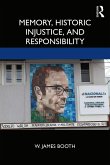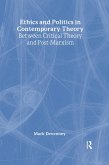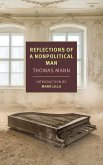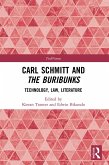What is it to do justice to the absent victims of past injustice, given the distance that separates us from them? Grounded in political theory and guided by the literature on historical justice, W. James Booth restores the dead to their central place at the heart of our understanding of why and how to deal with past injustice. Testimonies and accounts from the race war in the United States, the Holocaust, post-apartheid South Africa, Argentina's Dirty War and the conflict in Northern Ireland help advance and defend Booth's claim that caring for the dead is a central part of addressing past injustice.
Memory, Historic Injustice, and Responsibility is an insightful and original book on the relationship of past and present in thinking about what it means to do justice. A valuable addition to the currently available literature on historical justice, the volume will be of great interest to students and scholars of political science, philosophy, history, and law.
Dieser Download kann aus rechtlichen Gründen nur mit Rechnungsadresse in A, B, BG, CY, CZ, D, DK, EW, E, FIN, F, GR, HR, H, IRL, I, LT, L, LR, M, NL, PL, P, R, S, SLO, SK ausgeliefert werden.









